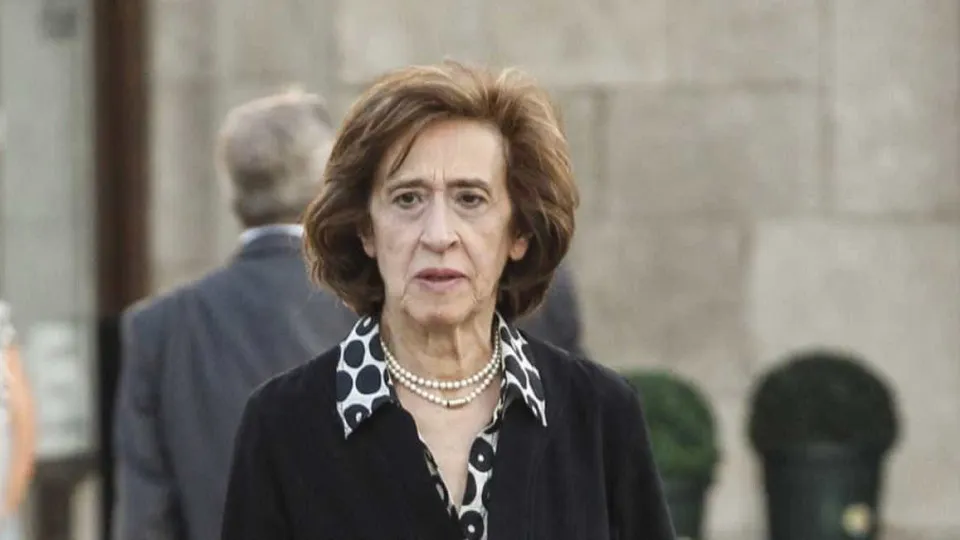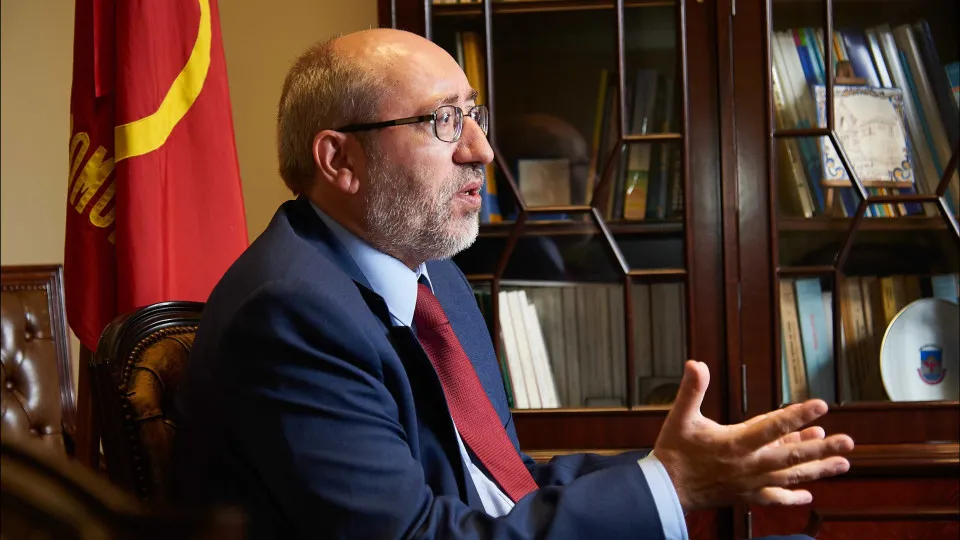
National elections on October 12 saw the PSD/CDS-PP coalition secure a victory in Baião against PS, which has managed the municipality since 2005 when current Socialist leader José Luís Carneiro won it and led until 2015.
“The municipality was governed by the PS for 20 years, and now it changes. The result was both historic and surprising. It would be very hypocritical of me to deny that. We need to pacify the municipality (…). It’s important to govern with sensibility and sensitivity so that we can all work together,” stated in an interview.
At 33, the entrepreneur in the textile sustainability sector, who began her political career with JSD in 2017, has led the PSD of Baião for five years and the social-democratic bench in the Municipal Assembly for eight, now winning the council with an absolute majority.
“Frankly, I only realized the national dimension of this when [PSD president] Luís Montenegro called to congratulate me. I was never driven by the idea of winning the land of Dr. José Luís Carneiro, someone I respect despite our different political affiliations and whom I consider to have an extraordinary political career,” she expressed.
Ana Raquel Azevedo attributes the “historic and surprising” victory to the population’s desire for change, the opportunity given to young individuals, identification with the PSD/CDS-PP project, and a campaign focused on ideas, teams, and door-to-door efforts.
“People know, without a doubt, that I lack the governance experience of the current president [Paulo Pereira, who has presided over the Baião council for 8 years and was previously a councilor during José Luís Carneiro’s terms], but they gave me their vote of confidence, believing I can work for the council’s benefit,” she analyzed, adding: “I think what Baião’s residents said on Sunday, the 12th, is that we need to know how to work together.”
Noting the socialists secured 10 of Baião’s 14 parish councils, ensuring a majority in the Municipal Assembly, the new mayor considered this victory was “not a red card to the PS” but instead “a red card to the current municipal executive’s governance.”
“They led Baião arrogantly in recent years, which became even more evident during the election campaign. But just as one must know how to lose, one must know how to win. I am fully aware that I speak more simply, which is already considered simplistic, even populist, though it isn’t,” she emphasized.
With about 10 days left before taking office, the new president promised: “No citizen or employee of the Town Hall will face reprisals for belonging to different political lists. This isn’t a cliché. I want fair and equal governance for all.”
On priorities, while refraining from setting goals and budgets because “first, I want to sit down with all municipal employees to understand what is right, what is wrong, and what can be improved,” Ana Raquel Azevedo highlighted three areas: housing, employment, and social cohesion.
“My generation left Baião because there was no work. Today, there are young people who even have jobs in Baião but lack housing,” she lamented.
She plans to launch the “Baião Arrenda” program to increase the availability of popular housing types and supported rent schemes, positioning the council as an intermediary between owners and tenants, but “first and foremost, conducting an analysis of the urban planning office.”
“Throughout the campaign, we met numerous families who abandoned building in Baião due to the licensing delays, young people who moved to Marco de Canaveses, which is advancing rapidly. We need to understand what is failing. If more hiring is necessary, we will hire more; if bureaucracy is the issue, we must simplify as much as possible. A low-density area cannot afford to lose even one more resident over licensing issues,” she considered.
To attract and retain young people in the municipality, the elected president aims to introduce gradual IRS refunds and, as an incentive for childbirth, promises to provide 1,200 euros for each new Baião child, to be spent in local businesses.
The “Baião Atrai” program, aimed at attracting companies and creating jobs, will establish a “favorable environment for investment,” composed of municipal staff and individuals connected to the business world who will be tasked with mapping out potential and challenges.
“Once this study is completed, determining where we should head, they will traverse the country and, possibly, the world in search of businesses and investments. We cannot wait—like has been the norm—for businesses to come knocking at the Town Hall’s door saying ‘I want to come to Baião’,” she noted.
In Education, Ana Raquel Azevedo’s focus should “be 10, 15, 20 years ahead,” by introducing areas like robotics and programming, for example, to “equip Baião’s children with future tools, preparing them for the jobs of the future.”
For the elderly, she promises to revamp Community Relations Centers, structures created in partnership with parish councils and the municipal council for leisure activities, a project she praised and wants to “professionalize to ensure more offerings,” involving local charitable organizations (IPSS).
Another project for review at the start of her term is the Tijelinho Municipal Forum, “an infrastructure to place where the gastronomy and biweekly fairs are currently held, potentially attracting major events.”
“We presented the outline during the election campaign of what we want to do there. But I know there is already a plan in the Town Hall. We won’t scrap everything that’s been done, and we might even save money if what we find makes sense for us,” she said, stressing the idea that “not here to dismantle everything that has been done.”
“Some things were well done. Schools and infrastructure were created, which obviously deserve our acknowledgment (…). What I ask people for is: first, time to arrive, understand, adapt. Then we’ll start doing what wasn’t done in 20 years,” she concluded.
In the October 12 elections for the Baião Town Hall, the PSD/CDS-PP coalition obtained 51.68%, electing four members, while the PS garnered 40.67% with three seats.




